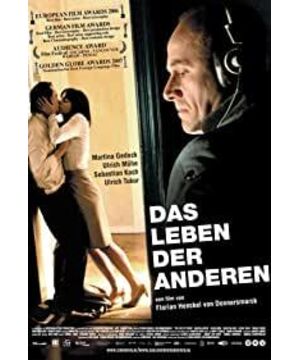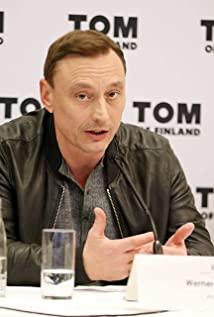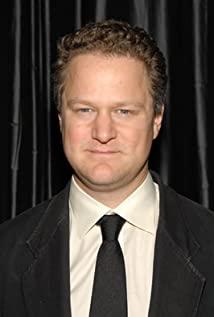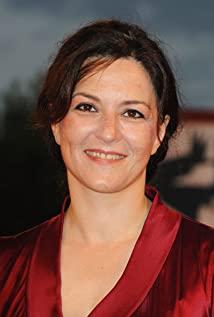Many details can be seen in other movies. The description of the East German government and the satire of corrupt officials remind me of another movie, "The Sun Scorching People." They are all restrained and suppressed emotions. The "scorching sun" shocks me much more, but the "eavesdropping storm" lacks a flash point, which always makes people feel that it is not a taste. Stalin's Great Purge was also a scar that many filmmakers did not want to touch. Director Mikhalkov did not condemn it positively. He only calmly described the pastoral life of a retired general. The huge fireball that followed like a shadow swallowed the family little by little like a nightmare, and faintly disturbed that ordinary summer. Many times, the director is just shooting scenery, shooting Kotov and his little daughter playing by the lake, and shooting the man who can never find the right direction while pulling a cart of goods. In the film, Midya, who arrested Kotov at last, resembled the actress in "Eavesdropping Storm". Although the purpose was different, he had to expose his close people and finally committed suicide. I prefer the "scorching sun" treatment: Midya is lying in the bathtub, and the dark red fireball flies out of the upper window. The director seems to imply that there will be no vitality wherever the cleaning goes. Also, at the end of the film, when Kotov was taken away by the secret police, a huge head of Stalin rose in the sky. The bitterness of it is estimated that only those who have experienced it can experience it. In "Eavesdropping Storm", the director's intention was not to show such a huge dramatic contrast, but to suggest that there may be more unknown stories in the secret archives of the former East Germany, and some have even disappeared forever in 1989. Shredders and incinerators that have been busy for years.
What's very special in the movie is the life of the wiretapper Whistler. He is always meticulous, conscientious, and a simple and boring life is all he has. The tie is always black and tightly tied until he is almost out of breath. When he comes home, he is just reading the news and eating a fixed dinner. It doesn't matter, his life will be dedicated to the government. He has no family or friends, and can only find prostitutes when he is lonely, but they won't stay with him for an extra minute without money. To say that no one has greater enthusiasm for work than Whistler, he never feels that he is inhumane, he feels that his work is extremely glorious. Although even the neighbor’s child said that the NSA members are bad guys, these are not important. His whole life belongs to the government.
Until one day, the poet Dleyman who he eavesdropped on, let him experience a completely different life. They will stand up for their friends, instead of calculating each other, clinging to the powerful, love here is not so fragile as a vow, they give their lives for each other. Everything is as beautiful as Brecht’s poems,
"It was a blue September day, and
I was
holding her quietly under the slender shadow of a plum tree . My lover was so
pale and silent, as if there was no one. A passing dream. Above
us, in the bright summer sky,
there is a cloud. My eyes have been staring at it for a long time.
It is white, high, and far away from us.
When I looked up, I found it was gone.
… …
As for the kiss, I have forgotten
it a long time ago, but the cloud floating in the sky
I still remember, and I will never forget it."
I don't know on which day, an intoxicating flower grew in a world with only black and white. Dreyman told the Minister of Culture that if anyone is truly loyal to the government, he will not change his position because of his drama. However, people will always unconsciously protect the beautiful things encountered in life. After all, this is a world lacking miracles. People who suffer from life need dreams and hopes. When the boss read the "Research on Ideology and Political Ideas" to Whistler, there was no conflict and struggle, and Whistler decided to make life more beautiful. For example, someone praised him as a good person, he had never thought about this, but at that moment, it was not a big shock.
In 1989, the Berlin Wall fell. Those high-ranking officials continue to be their high-ranking officials, these desperate eavesdroppers have been displaced, and even more tragic, they may be revenge. They just do the so-called right things that people have taught them since they were born. Whistler's eyes are always waveless, calm and open, and there may be loneliness or loneliness. The proof that he was alive may be the code name: XX/7.
However, as the white cloud floated above his head, there are some things that are destined to never be forgotten. One day, he will pass by a bookstore, pick up a best-seller, and it says on the title page, dedicated to HGWXX/7,
my dear, it is an eternal dream, I saw the pure color shining in his pale green eyes .
Please indicate the author: Nine-Tailed Black Cat
http://www.mtime.com/my/LadyInSatin/blog/416685/
View more about The Lives of Others reviews











